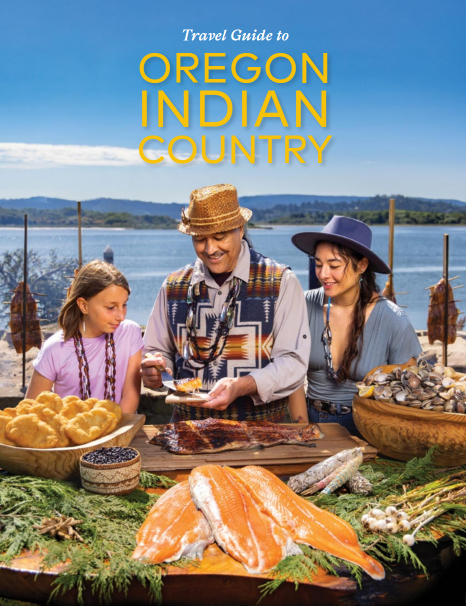The Tribe held an awards reception at The Mill Casino-Hotel to fund projects throughout their five-county region in health, arts and culture, education, environmental, public safety and historic preservation. This year, 77 projects were awarded.
Category: Uncategorized
Coquille HS receives salmon eggs from Tribe
On Monday, January 8, 2024 the Coquille High School STEP Association (Salmon-Trout Enhancement Program) received their hatchery eggs for the school year.
With the support of the Coquille Tribe, ODF&W, and Coquille School District 8 the STEP Association delivered 6,000 eyed eggs to the Coquille Cunningham Creek Hatchery that is housed at Coquille Jr/Sr High School.
Coquille Tribe’s newest addition to Rogue Valley
Bear Creek Golf Center opens renovated driving range, bringing an upgrade to the Rogue Valley’s only covered driving range.
Coquille River small mouth bass derby extended
Native nations on front lines of climate change
Sharing knowledge and finding support at intensive camps. Associated Press covered the camp the members of the Coquille Tribe Climate Resilience Taskforce recently attended in Washington.
Dept of Transportation funds to help salmon
The Coquille Indian Tribe are among the agencies that will receive more than $19 million to get rid of barriers that have made it difficult for threatened fish to journey from freshwater rivers and streams to the ocean and back.
Breaking the law to uphold it
One man’s 2011 clam digging citation became a watershed event for the Coquille Indian Tribe. It was one of many battles that the Pacific Northwest’s Indigenous peoples have fought to preserve access to traditional foods.
In a seven-part project, Indian Country Today explores the issues surrounding “food sovereignty.”
Street construction
Bidding opens for intersection project
The Coquille Indian Tribe is seeking bids on an intersection reconstruction project at its Kilkich property near Coos Bay. Bids are due at 2 p.m. April 11.
Community Fund, 2023
Tribe shares $815,000 with local nonprofits
Curry Coastal Pilot, Jan. 16, 2023
Oregon Public Broadcasting, Jan. 11, 2023
KQEN News Radio, Jan. 10, 2023 (Douglas County)
Medford Mail Tribune, Jan. 9, 2023
KDRV, Jan. 9, 2023 (Jackson County)
KTVL, Jan. 9, 1023 (Jackson County)
KVAL, Jan. 9, 2023 (Jackson County)
Tribal Tourism
Travel guide highlights Oregon tribes

Dr. Jason Younker, chief of the Coquille Indian Tribe, and tribal members Matilda ViksneHill (left) and Kiana Younker appear on the travel guide’s cover.
See the story in Portland Monthly
